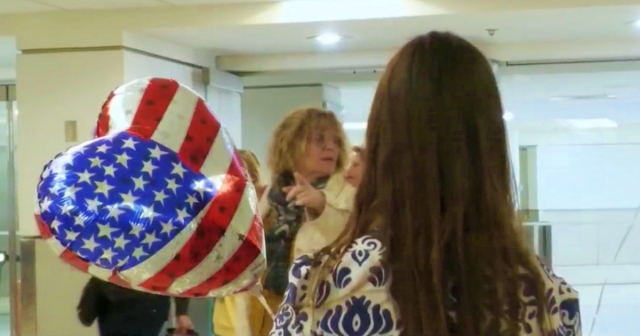The Customs and Border Protection (CBP) admits that there are cases of humanitarian parole beneficiaries arriving in the United States with falsified documentation.
They warn that Entering the country with false or altered documentation has serious consequences if detected by federal agents in charge of thoroughly reviewing the eligibility of new arrivals at the airport of entry. to enroll in the program.
Otto Vázquez, supervisor of the CBP ATA unit at Miami International Airport, highlighted in statements to Telemundo 51 the complexity of the protocol once the parole beneficiaries arrive in the United States.
The The daily number of people who arrive at that airport with parole ranges between 350 and 500.
"If we receive 100 people applying for humanitarian parole on the same flight, obviously it will require more time to process them," the official said.
“It is a complete secondary inspection, with systems that are predetermined to detect some type of irregularity, fraud, documents that have been manufactured by the person or altered”, he detailed in reference to the individual interview in which federal agents check in detail the migrant's background and the legitimacy of their documents.
Although citing operational and security reasons, officials refuse to provide details on the exact number of fraudulent documents they have found, they acknowledge that it is happening and that the problem is significant.
“It has happened that we have received letters from Advance Travel Authorization (ATA) that are fabricated or altered. Letters that are not sent from CBP One or CBP. "I can't give many specifications of how they did it, but I can tell you that they are not genuine."Vázquez explained.
CBP warns that the consequences for those caught with false documentation are severe.
“If you come to us with a forged letter, there will be consequences and they will be negative.”warns Vázquez, who added that obviously the migrant will not be able to qualify for the program, although he did not detail other legal consequences of the fraud.
However, Otto Vázquez He asked that anyone who feels like they are about to be scammed by someone who has promised help or expediting the process, contact the authorities.
“We have a unit that is dedicated to detecting these types of situations and we want people who may feel threatened or in danger to tell us because we have systems in place to prevent all of this and we have resources to help these people. “We prefer that they tell us and be honest,” he concluded.
Interviewed by the aforementioned media outlet, Rosaly Chaviano, a lawyer specialized in migration, also recognized the prevalence of fraud, especially in the first months after the implementation of the program.
“Definitely what we have seen is the use of information that exists, but with exchange of identities”, explained Chaviano, who pointed out that people's desperation due to the delay and lack of answers in the resolution of cases has been widely exploited by scammers.
Regarding the legal consequences, the lawyer pointed out that there are several charges: one for not having a valid document to enter the United States and is inadmissible, and another for fraud.
He indicated that The charge of “fraud” can be forgiven, but he specified that “not everyone is eligible for it.”
USCIS (Citizenship and Immigration Services) also takes preventative measures against fraud.
“The agency carefully reviews each potential sponsor through a process focused on security and anti-fraud, before confirming each I-134 A form,” they stated in a statement to NBC News.
All reported cases of fraud are carefully reviewed and may be referred to federal agencies for further investigation.
As of mid-April of this year, more than 435,000 migrants from Cuba, Venezuela, Nicaragua and Haiti have been processed under the humanitarian parole program, according to data cited by senior officials in President Joe Biden's government.
What do you think?
COMMENTFiled in:
